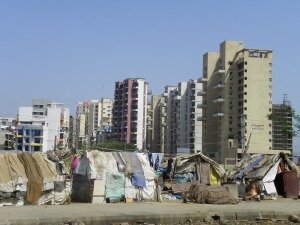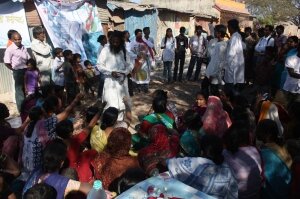Inclusion in urban planning and governance is a key to attain just and equitable cities. The urban planning processes which were followed traditionally were exclusionary and meant for a few. The cities have thus become structures of inequality where there exist two cities within a city.

In most cities of India, urban poor and slum dwellers who constitute 25-65% of the city population rarely occupy more than 3-5% of city land space. In Mumbai about 69% live in 6-8% land and constitute the slums of the city. Cities lack affordable housing and access to basic amenities. These communities also itness lack of participation in local governance. There is a huge backlog of supply of houses in the cities. The Planning Commission has estimated that at the end of the 11th five year plan, there is a backlog of 24.7 million houses and 99% of this belong to LIG and EWS section of the society.

‘Human settlements’ refers not only to the physical environment of residence and work but also the social aspects related to their habitation. This thematic area of work specialises in facilitating the provision of basic services by the state, promoting participatory governance, and ensuring dignity for people especially children, youth and women. YUVA Urban aims to achieve the goal of ensuring just and equitable human settlements by fulfilling four broad objectives.
To fulfill each of these objectives, YUVA Urban has plans to work in the following ways:
- Advocating for the right to shelter, tenure rights and basic services for the urban poor.
- Facilitating the provision of entitlements by the state, and facilitate and monitor the provision of basic services. (right to water, sanitation, food, health, education etc)
- Promoting women- and youth-led development and a child friendly environment
- Promoting people’s participation in the development planning process to secure their entitlements.
- Sharing knowledge with other organisation.








